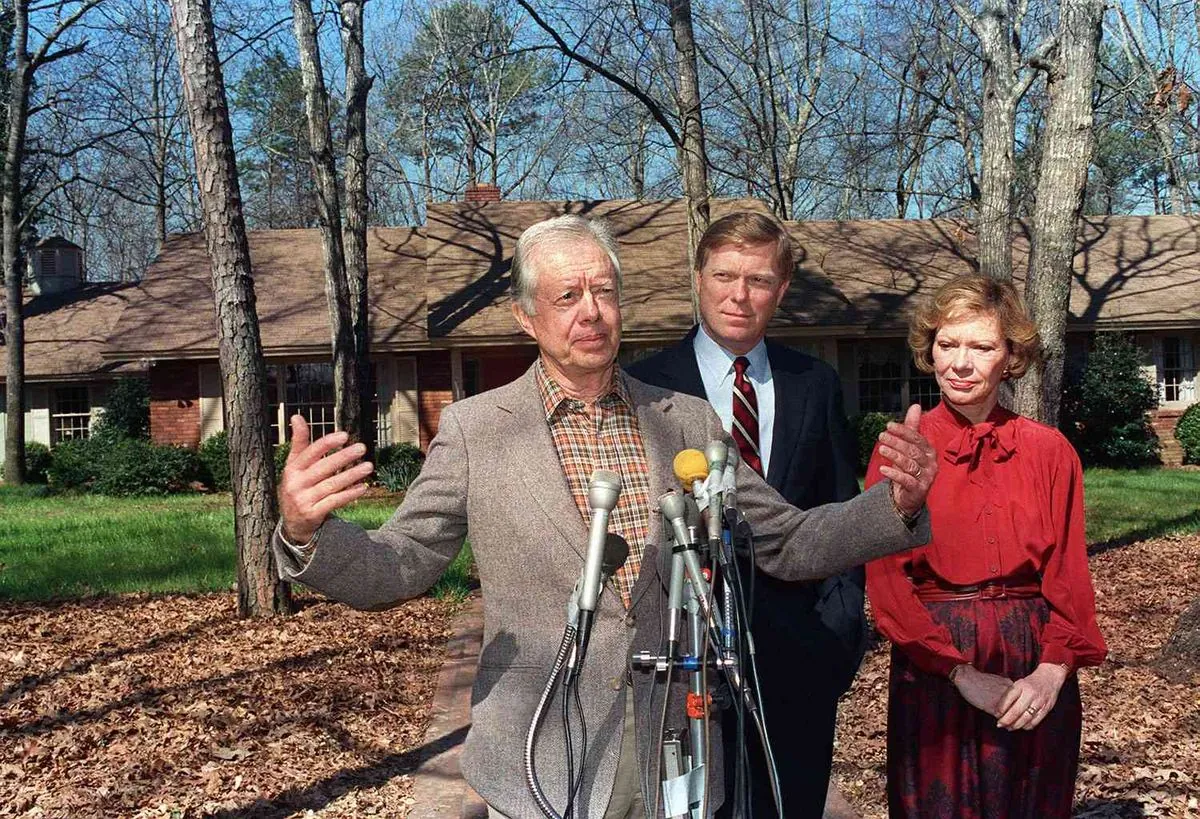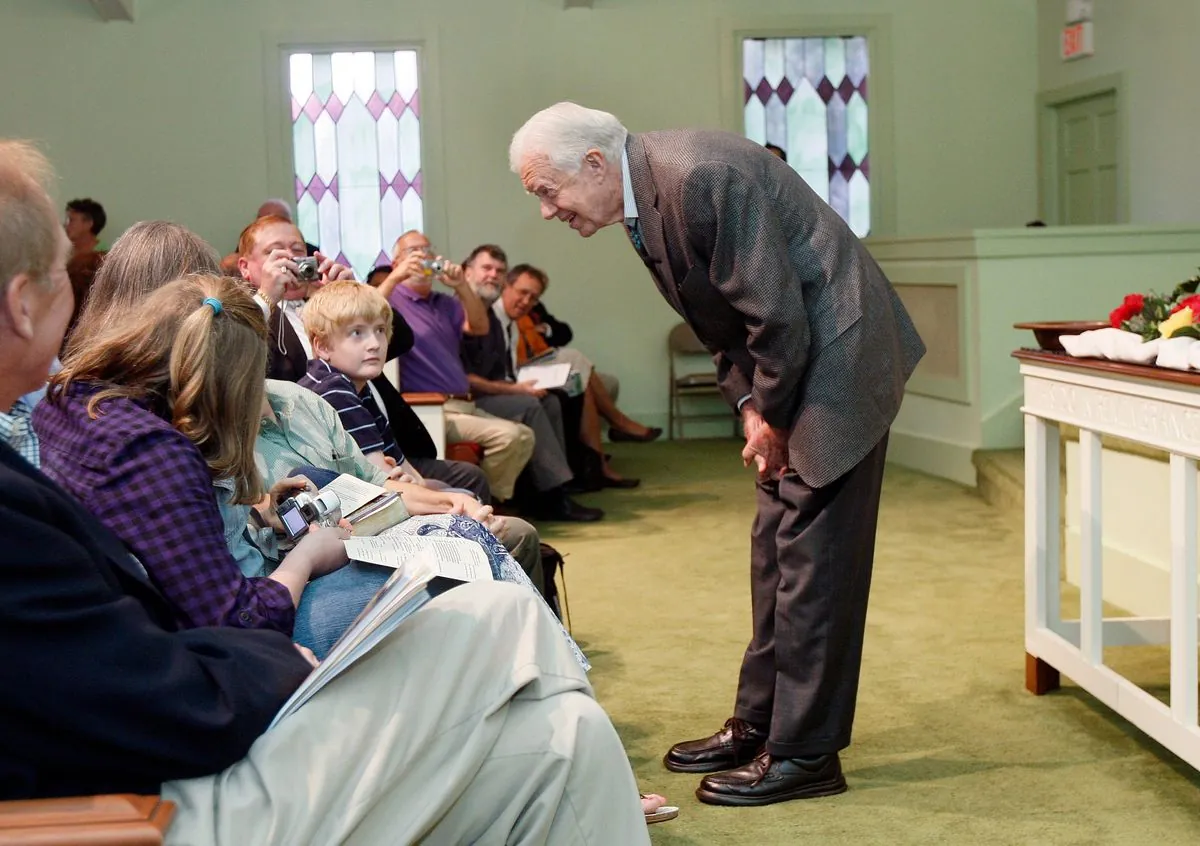Jimmy Carter: A Century of Change and Continuity in American Life
As Jimmy Carter approaches his 100th birthday, his life spans dramatic changes in America. From population growth to political shifts, Carter's century reflects the nation's evolution.

Jimmy Carter, the 39th President of the United States, is set to mark a remarkable milestone as he turns 100 on October 1, 2024. Born in 1924 in the small town of Plains, Georgia, Carter's life spans a century of profound changes in American society and politics.
Carter's longevity is noteworthy not only for its rarity but also for the historical perspective it provides. As the longest-living president in U.S. history, he has witnessed the nation's population nearly triple, from 114 million at his birth to approximately 330 million today. Globally, the population has more than quadrupled, surpassing 8 billion.
Despite these demographic shifts, Carter's hometown of Plains remains relatively unchanged, with its population growing from about 500 in the 1920s to around 700 today. This small-town constancy contrasts sharply with the sweeping changes Carter has observed throughout his life.

Carter's century has seen significant advancements in technology and media. He was 14 when Franklin D. Roosevelt made the first presidential television appearance, and he witnessed the evolution of election night coverage from radio to color-coded TV maps. The transition from "blue states" for Republicans to the current "red state/blue state" paradigm occurred during his lifetime.
In the realm of consumer habits, Carter has seen dramatic shifts. When he was born, a loaf of bread cost 9 cents, and a gallon of gas was 11 cents. Today, these prices have increased exponentially, reflecting the economic changes of the past century.
Carter's life also spans crucial developments in civil rights. Born four years after the ratification of the 19th Amendment, which granted women the right to vote, he later witnessed the passage of the Voting Rights Act in 1965. Now, he may have the opportunity to vote for Kamala Harris, potentially the first woman and person of color to reach the Oval Office.
Interestingly, some political themes from Carter's early years have resurfaced. The isolationism and immigration restrictions of the 1920s find echoes in contemporary debates, highlighting the cyclical nature of certain political issues.
As a devoted Atlanta Braves fan, Carter's connection to baseball offers a unique lens through which to view American cultural history. He was present at significant moments in the sport, including Hank Aaron's record-breaking 715th home run in 1974.
Carter's presidency, from 1977 to 1981, was marked by fiscal responsibility. He added less than $300 billion to the national debt, a stark contrast to the current $35 trillion figure. This frugality extended to his personal life, with anecdotes of him reusing Ziploc bags illustrating his practical nature.
Throughout his life, Carter has demonstrated remarkable resilience and dedication to public service. He survived a bout with brain cancer in 2015 and continued teaching Sunday school classes well into his 90s. His post-presidency work, including founding the Carter Center and writing over 30 books, has earned him widespread respect and the Nobel Peace Prize in 2002.
As Jimmy Carter approaches his centennial, his life serves as a testament to the changes and continuities in American life over the past hundred years. From technological advancements to shifts in social norms, Carter's century encapsulates the evolving story of the United States.
"The former president is holding on in part because he is excited about the chance to see Harris make history."


































